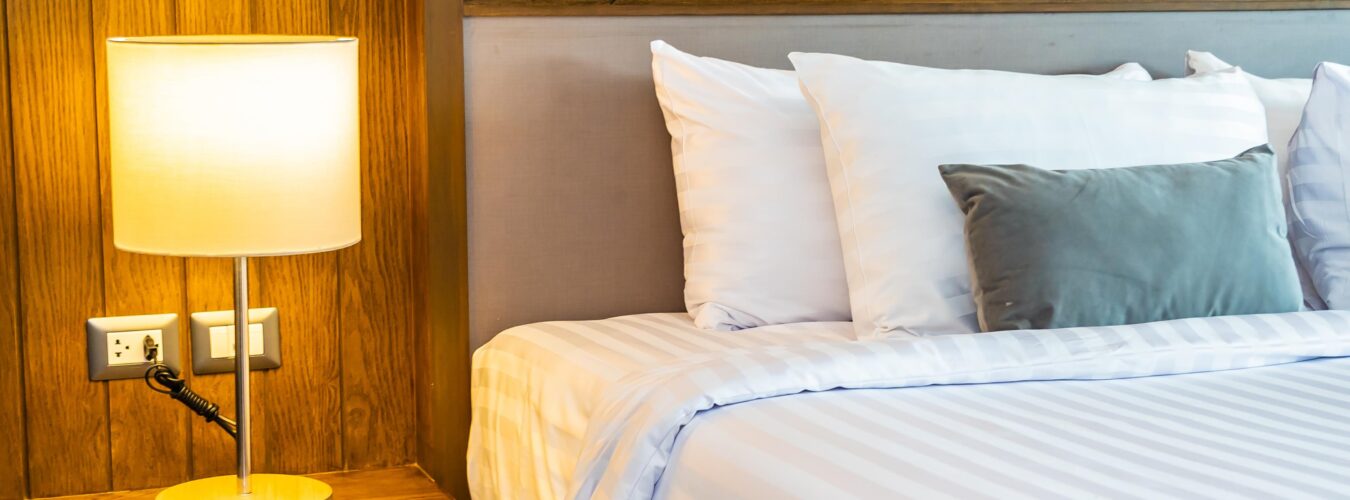Popular sites like Airbnb and SpareRoom are inspiring some homeowners to generate income by letting out part or all of their home. But what are the tax consequences of this?
The tax implications of letting your home all depend on how much you make, how much of your home you let out and how often it is made available.
LETTING OUT ALL OR PART OF YOUR HOME
The amount of tax you pay will depend on what profits you’ve made from letting plus any other income you have. Be aware that online providers report your letting income details to HMRC. See this article about the new obligations those online platforms now face: Online Sales Platforms are required to report seller earnings to HMRC.
RENT-A-ROOM RELIEF
Rent-a-room relief (currently £7,500 per year) is available if you let part of your only or main residence as furnished residential accommodation. Letting a room as an office, for example, will not qualify for the relief.
The residence (which does include caravans or houseboats) must be your only or main residence at some point in the same tax year as the letting income is received. You do not, however, need to occupy the property at the same time as your tenant.
A building temporarily divided into separate accommodation units may qualify for rent-a-room relief. If it is permanently divided, however, it will not qualify.
If the gross receipts don’t exceed £7,500, there is no income tax liability on your profit. If your receipts exceed that figure, you can choose either to pay tax on the excess, or on your actual profit after qualifying attributable expenses.
In calculating your profit, you can deduct certain allowable expenses – such as a proportion of building and contents insurance, council tax (or business rates), and maintenance/repairs to the property. Seek specialist advice for the complete list. A tax deduction is also given for loan interest and other finance costs, but restrictions and conditions apply.
The relief applies to your property, not to you as an individual. So, if you co-own your home with others, the £7,500 allowance has to be split between you and you each get £3,750 (even if there are more than two owners).
If you have any other letting income there is a property allowance of £1,000. This means…
- if the income is less than £1,000 in a tax year (for example from letting out a car parking space), this is exempt from tax, or
- if your expenses are less than £1,000 on other letting income, you can deduct the allowance.
Be aware the £1,000 property allowance is not in addition to the £7,500 rent-a-room relief, and so cannot be used in respect of that income.
Rent-a-room relief is only available to individuals, not to a formal partnership or company. The relief cannot create a loss e.g. if your income is less than £7,500 (or £3,750 if the relief is shared).
If beneficial, you can elect not to have full relief (which is otherwise automatic) or not elect/withdraw an election for partial relief. Any loss will then be treated under normal rules and may be carried forward and deducted from future property income.
VAT
Your lettings are likely to fall within the VAT definition of quasi-hotel or holiday letting. Most people who act as hosts via Airbnb or SpareRoom are, however, not VAT registered as their turnover is less than the VAT registration threshold (currently £90,000 a year).
If you are already VAT-registered personally, or the rents exceed the VAT registration limit, you will have to account for VAT at 20% on those rents. You are, however, able to reclaim the VAT on associated costs.
Note, if you are VAT registered in your own name for a different business activity (for example, a consultant), but also receive property rental income, this income will need to be treated as part of your VAT registration and returns. If your VAT registration is as a different entity e.g. a partnership, you do not need to include personal rental income.
MAKING TAX DIGITAL
The Government’s Making Tax Digital (MTD) initiative involves maintaining digital records and using MTD-compliant software to provide information to HMRC.
Every VAT-registered business must now be MTD compliant even if their income is below the VAT registration threshold and they are VAT registered on a voluntary basis. The only exceptions are for those that are unable to use computers ie on the grounds of religion, disability etc.
MTD is then intended to apply to income tax from April 2026. This will affect landlords with an annual rental turnover of over £50,000, as well as the self-employed. Those with an income of between £30,000 and up to £50,000 will be mandated from April 2027.
BUSINESS RATES
Business rates may be payable on your property, although there are many reliefs. Generally, liability here depends on the property being let for at least 105 days per year, and being available for letting for at least 210 days per year.
BE CAREFUL IF YOU’RE LOOKING TO SELL THE PROPERTY
If you are looking to sell the property in the future, do get specialist advice regarding the effect of any letting you’ve done or plan to do. A gain on disposal of your main residence is generally exempt from Capital Gains Tax (CGT). Any period of letting activity, however, may restrict the exemption. Do seek professional advice to ensure you don’t end up with a hefty CGT bill.
CHANGES TO FURNISHED HOLIDAY ACCOMMODATION
In the 2024 Spring Budget, the government announced that it would abolish the tax-advantageous Furnished Holiday Letting rules in April 2025.
It has also announced that from summer 2024, new holiday lets in England will be subject to new controls. These aim to prevent local people from being unable to afford to live in their own community, and give local councils more control over housing.
The changes will mean people need to seek permission from their local council to turn a property into a short-term let, and a mandatory national registration scheme will also be introduced.
Those people renting out their main home for fewer than 90 nights a year, however, will not need planning permission. Hotels, hostels and B&Bs are also unaffected by the changes.
Finally, do check the terms of your mortgage, property insurance and lease, if there is one, before letting out all or part of your home.
For more information on letting furnished holiday accommodation see here on the gov.uk website or contact one of our specialists shown on this page.
Specific advice should be obtained before taking action, or refraining from taking action, in relation to this summary. If you would like advice or further information, please speak to your usual Shipleys contact.
Copyright © Shipleys LLP 2024















